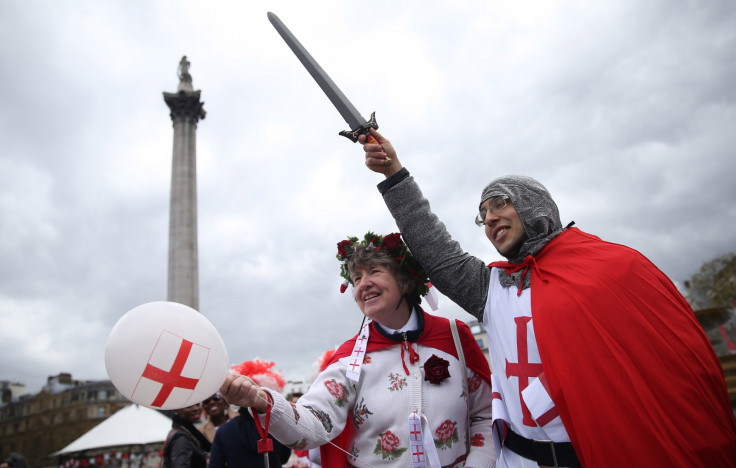Happy St George's Day: A history lesson on the patron saint of England
Did you know St George wasn't born in England and never came here?

St George's Day falls on 23 April every year to celebrate the patron saint of England – the man from legend who slayed a dragon a saved a maiden in distress, representing English values of chivalry and valour.
The annual commemoration is not widely celebrated in the UK – it is not even marked with a bank holiday – and many people are not aware why the day is celebrated or who St George was.
St George was allegedly a soldier in the Roman army, who was born in Palestine during the 3rd century AD. He grewing up in Lydda – an area now located near modern day Tel Aviv, Israel.
Medieval history dictates that he was punished and tortured for refusing to abandon his Christian faith when commanded to by Emperor Diocletian, a notable opposition to Christianity.
He was later dragged through the streets and beheaded for his disobedience on 23 April 303 AD. This is the day he is celebrated as a patron saint, but the man himself never actually stepped foot on English soil.
King Edward III was reportedly inspired by the story of George, having read about his inspiring tale in the book "The Golden Legend". He then created "the Order of the Garter" in 1350, displaying on the badge an image of George slaying a dragon.
The Golden Legend, written by Jacobus de Voragine, depicts George arriving in the village of Silene, in Libya, which had been plagued by a giant dragon. The monster was guarding a well and had posed a huge threat to the villagers. In typical heroic style, George defeated the dragon and saved the life of a princess, before she was about to be offered to the dragon to stop it attacking others.
Since then, St George has become an icon in English heritage, being seen on the nation's flag, which was believed to be the emblem St George used on the front of his shield.
#StGeorgesDay ... #Ukip are livid ... pic.twitter.com/lAupdR18sp
— Far Right Watch (@Far_Right_Watch) April 23, 2017
The man himself inspired not only England, but several other countries. He is also the patron saint of Germany, Portugal, Greece, Bulgaria, Georgia, Palestine, Ethiopia, Serbia, Slovinia, Lithuania, Portugal, Malta and Montenegro.
People in England might be wondering why St George's Day is not a national holiday for England. It used to be for centuries after being declared a national feast day in 1415, but lost its status following the creation of Great Britain when England and Scotland signed the Treaty of Union in the 18th century.
The lack of celebrations on St George's Day pales in comparison to the likes of Ireland, where wild displays of patriotism on St Patrick's Day, which commemorates the "Apostle of Ireland", have sparked similar parties worldwide.
In New York, a huge parade can be seen marching through the streets every year, while cities such as Chicago and Washington have marked the occasion by dying rivers and fountains green – the colour of Ireland.

© Copyright IBTimes 2025. All rights reserved.




















